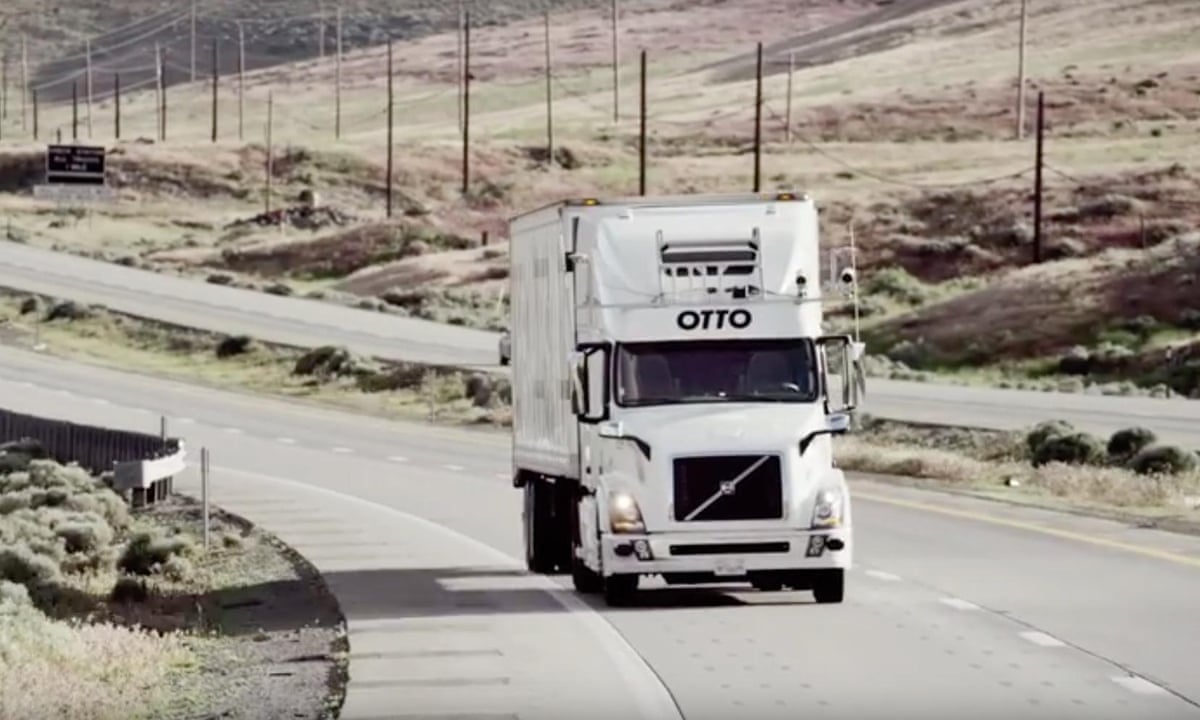A startup founded by ex-Google, Tesla and Apple engineers believes self-driving truck are a good fit for the nations long, straight, lonely roads

Everyone in San Francisco these days wants to build a self-driving car.
So in a company town that prides itself on going against the grain, this startup wants to build a self-driving truck.
On Tuesday, several former Google, Tesla and Apple engineers announced they had quit their prestigious jobs to start Otto, which aims to sell automation kits for the massive semi-trailers that crowd Americas highways. The company says it has logged more than 10,000 test miles and recently tested its truck on a Nevada highway.
Self-driving startups have become commonplace in the latest tech boom as many engineers have lost interest in simply building apps and robotics technology becomes cheaper.
But theres unusual interest in Otto because of its co-founders all former Googlers pedigrees.
Anthony Levandowski and Don Burnette worked on self-driving cars, Lior Ron worked on maps and Claire Delaunay, head of engineering at Otto, was a robotics lead.
Other notables had worked at Tesla or Apple, also reported to have a self-driving car project. For instance, Jur van den Berg, one of Ottos engineers, previously worked on self-driving cars for Google before joining the special projects group at Apple, according to his LinkedIn account.
The company hasnt disclosed when it plans to sell its products, its investors or how much the self-driving truck kits would cost. However, there are several reasons to think a self-driving truck might see the road before a self-driving car.
For one, highway driving where trucks tend to drive is one part of autonomous driving that technology companies seem to have figured out. There are no intersections to navigate, no pedestrians darting across the road and speeds are relatively constant. Many states already allow autonomous vehicles on public highways.
Theres also likely a more eager marketplace. Autonomous technology has gotten cheaper but its still an expensive add-on to a $30,000 car. The relative cost increase is smaller for trucks, which tend to be run by businesses and usually cost more than $100,000 anyway.
And as Otto notes, there is more of a practical benefit for drivers, who log long, lonely hours on very straight roads for companies looking to slash shipping budgets. Truck drivers have experienced a gradual decline in quality of life as conditions worsen and expectations rise, the company wrote in a blog post.
Truck drivers, of course, may not be the biggest fans of Otto.
Even though the company pitches it as a tool to help drivers better manage the demands of long treks, its not a big leap to envision Amazon or UPS using Ottos technology to automate their fleets no human assistance required.
Read more: www.theguardian.com




![[Video] How to get rid of bed bugs in Toronto](https://www.thehowtozone.com/wp-content/uploads/2019/10/maxresdefault-2-100x70.jpg)


